Description
ABSTRACT
A Review of the Supreme Court’s Decision in Heritage Bank Limited v Benworth Finance (Nigeria) Limited on Court Processes Signed in the Name of a Law Firm
Folabi Kuti*
In the wake of the diverse interpretations that have greeted the recent decision of the apex court in Heritage Bank Limited v Benworth Finance (Nigeria) Limited1 arguably relaxing some aspects of the rule in Okafor v Nweke (on whom and how to sign court papers), this critique takes a look at the reverberations and the unintended underlying strands the decision may have brought up.
Keywords: Court Process, Endorsement, Originating Process.
INTRODUCTION
The decision of the Supreme Court in Okafor v Nweke,2 is presumptively well-known in legal circles; such that it is scarcely necessary to recount the bare details here. To be sure, it made a strict prescription for how, and by whom, processes of court are to be signed. The inflexible rule in Okafor v Nweke is now so regularly applied, that it has also attracted, by extension, a direct attribution to a revered English law lord, all too often quoted, to announce the ensuing catastrophe to a court process that falls short of the prescription: ‘You cannot put something on nothing’.
PRECIS OF DECISION UNDER REFERENCE
The Supreme Court, by its recent decision in Heritage Bank Limited v Benworth Finance (Nigeria) Limited,3 has now, it would seem, introduced a strand of distinction to the application of the seemingly inflexible rule in Okafor v Nweke. The facts stated simply: the writ of summons by which the action at the trial court was initiated, was properly signed by a legal practitioner, but not so for the statement of claim. It was issued, endorsed and signed in the name of a law firm. Instructively, the defect was only raised for the first time when the matter went on appeal to the Supreme Court. The Supreme Court, per Ejembi Eko JSC in the lead, in overruling the objection, made two distinctions, viz, (a) the originating process (that is, the writ of summons) was properly signed, and; (b) -in any event- the objection as to the defective statement of claim, was not timeously raised. His Lordship’s exact words:
The facts of this case, particularly on this objection, are that in spite of the fact that the Statement of Claim was allegedly not signed by a known legally qualified Legal Practitioner, but by a firm of legal practitioners. The Appellant, as the defendant, condoned the defective process. They participated in the proceedings and evidence arising from the Statement of Claim was called after the statement of defence joining issues with the defective Statement of Claim was filed. Judgment of the trial court, based on the evidence elicited from the Statement of Claim, was delivered without objection.
* LL.M, BL. Notary Public and Partner in the Law Firm of Perchstone & Graeys.
- SC 175/2005. Judgment delivered February 22, 2018.
- (2007) 10 NWLR (Pt. 1043) pg. 521.
- Judgment delivered February 22, 2018.

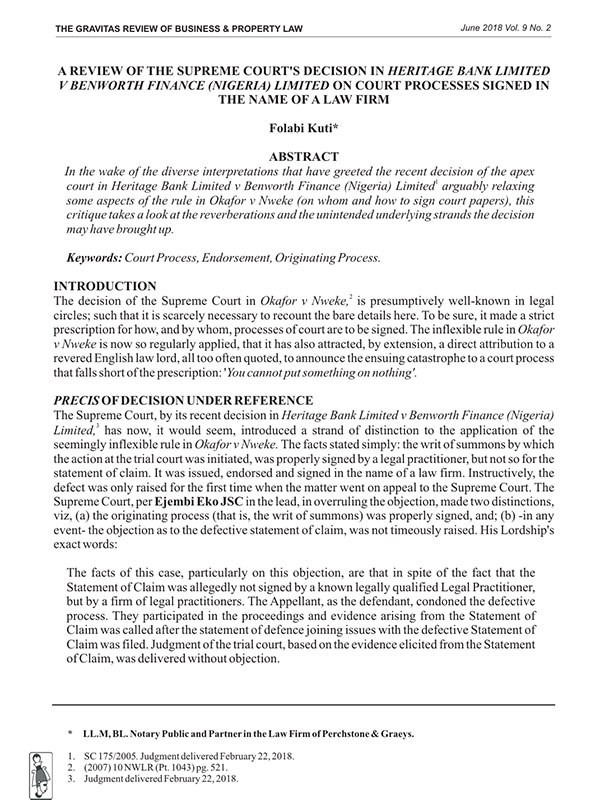
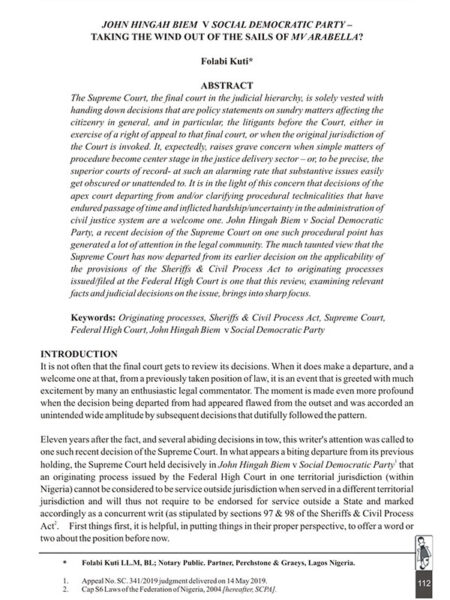
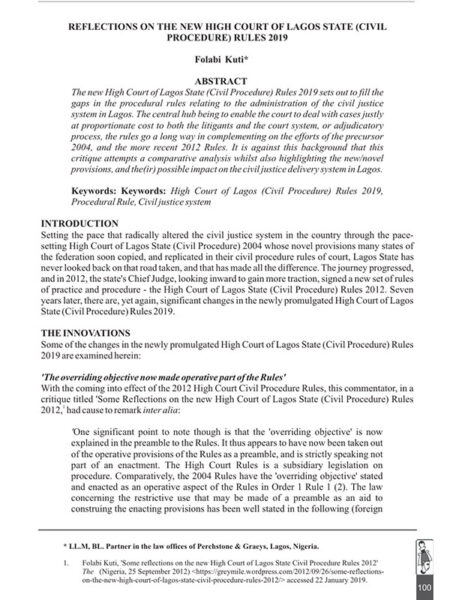
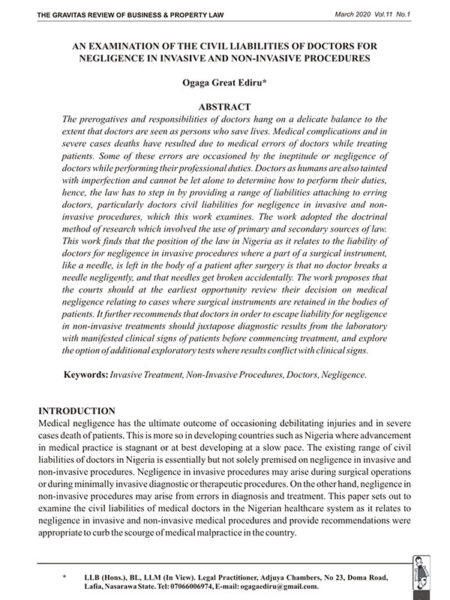
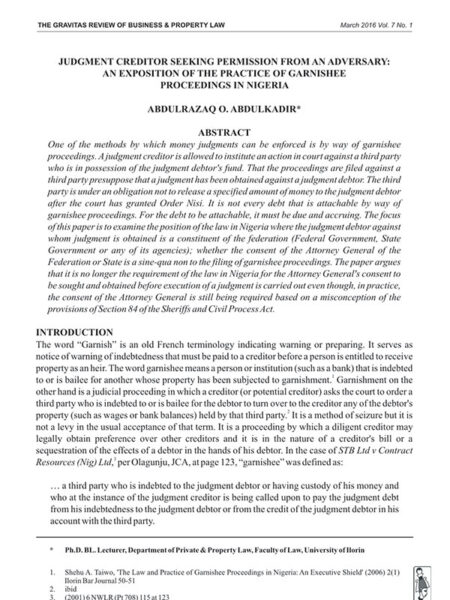


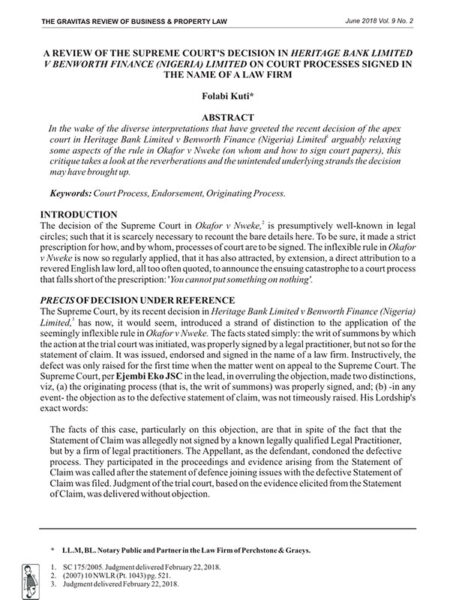
Reviews
There are no reviews yet.